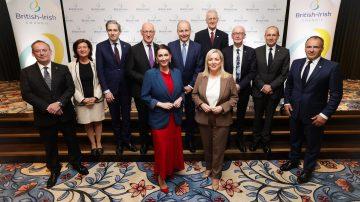Today, the Guernsey Community Foundation is publishing a major new study examining the quality of life on the Island.
The Quality of Life Report 2025 is the result of a year-long research project looking at life in Guernsey. As well as highlighting many positive aspects of living on the Island, it has identified a range of pressing needs and problems, some of which are well hidden.
The detailed, wide-ranging report – the first of its kind – makes a number of key observations based on an extensive analysis of published and unpublished data, new interviews with leading charities, and the results of one of the largest surveys ever conducted locally.
The report’s publication coincides with the 15th anniversary of the Guernsey Community Foundation. Established in 2010, the Foundation exists, in the words of its constitution, ‘to bring about real improvements to the community and to the lives of people most in need’.
“The Foundation has always been about improving Islanders’ quality of life,” said the Foundation’s Chair, Sir Richard Collas. “But how does one determine quality of life? This report is our attempt at answering that question. The States and various public bodies periodically publish statistics and surveys, but until now there has never been an attempt to bring all of this information together to tell a story about what it’s actually like to live here.”
Despite the vast quantity of statistical information involved, the Foundation has tried to make the report as accessible as possible. “Where possible, our findings are presented in quite a relaxed, conversational way,” said Alex Lemon, the Foundation’s Policy & Research Lead and the report’s principal author. “When working with a lot of data it’s easy to create something that’s quite dry and clinical, and that can put people off. Our report is intended to trigger conversations, and that can’t happen unless people actually want to read it.”
To produce the report, the Foundation not only reviewed swathes of previously published data but commissioned a new survey from Island Global Research. The Living In Guernsey Survey, carried out last summer, attracted over 3000 responses – a record level of engagement. Respondents answered a range of questions which covered such topics as life satisfaction, inclusion, stress, and what they would change to make living here better. The number and demography of respondents mean that the Survey’s findings are broadly representative of the Island as a whole.
Jim Roberts, the Foundation’s Chief Executive and the report’s co-author, said: “Taken as a whole, the report reveals the extent to which your financial situation affects your life – from your happiness to your life expectancy, your stress levels to your sense of belonging. Work–life balance, mental health, loneliness, experience of public services, hope for the future – in Guernsey, virtually everything is tied to your ability to make ends meet.
“A couple of other findings jump out. Firstly, a lot of the Island’s young people are hurting. Low self-esteem, bullying, poor mental health, anxiety about the future… they are growing up in an Island that is different to the one that their parents and their grandparents grew up in, and – as with the effects of poverty the extent to which many of them are struggling does not appear to be fully or widely appreciated.
“Secondly, Guernsey is driving its people away. As evidenced in particular by individuals’ responses to the Living in Guernsey Survey, concerns about rising living costs and difficulties finding somewhere affordable to live are forcing some residents, especially young families, to move away, or to plan to move away. Even though they want to stay, they don’t see a future here, and that should concern us all.”
Unlike the Foundation’s other reports, this one doesn’t end with a set of recommendations.
“It’s intended to stimulate discussion before and after the election,” said Mr Roberts. “But that’s not to say that the Foundation won’t act on its findings. It will influence our future grant-giving and our programme of social research projects. We also intend, later in the year, to work with other charities to address specific issues identified in the report.”
Picture Credit: Peter Frankland
















